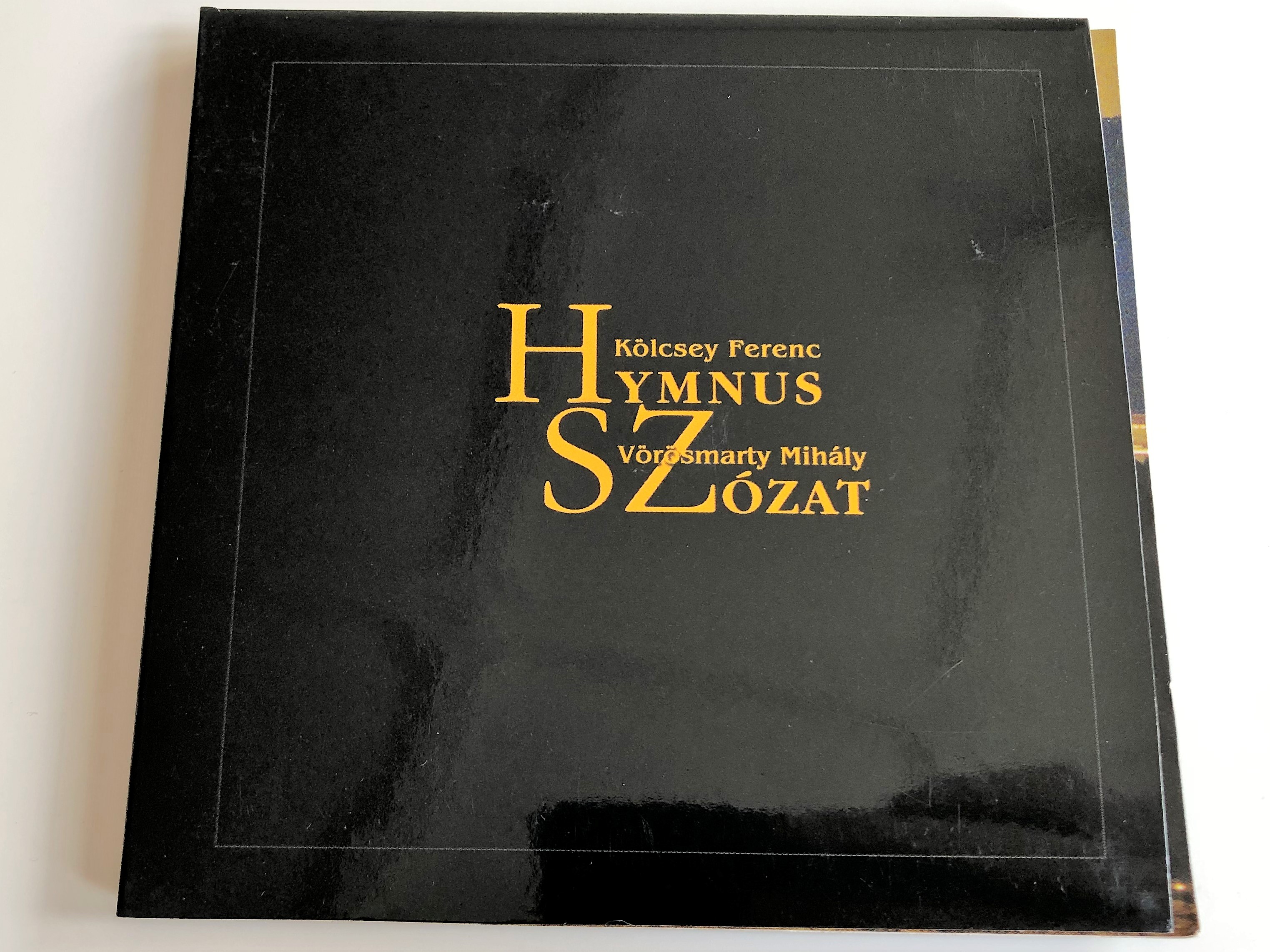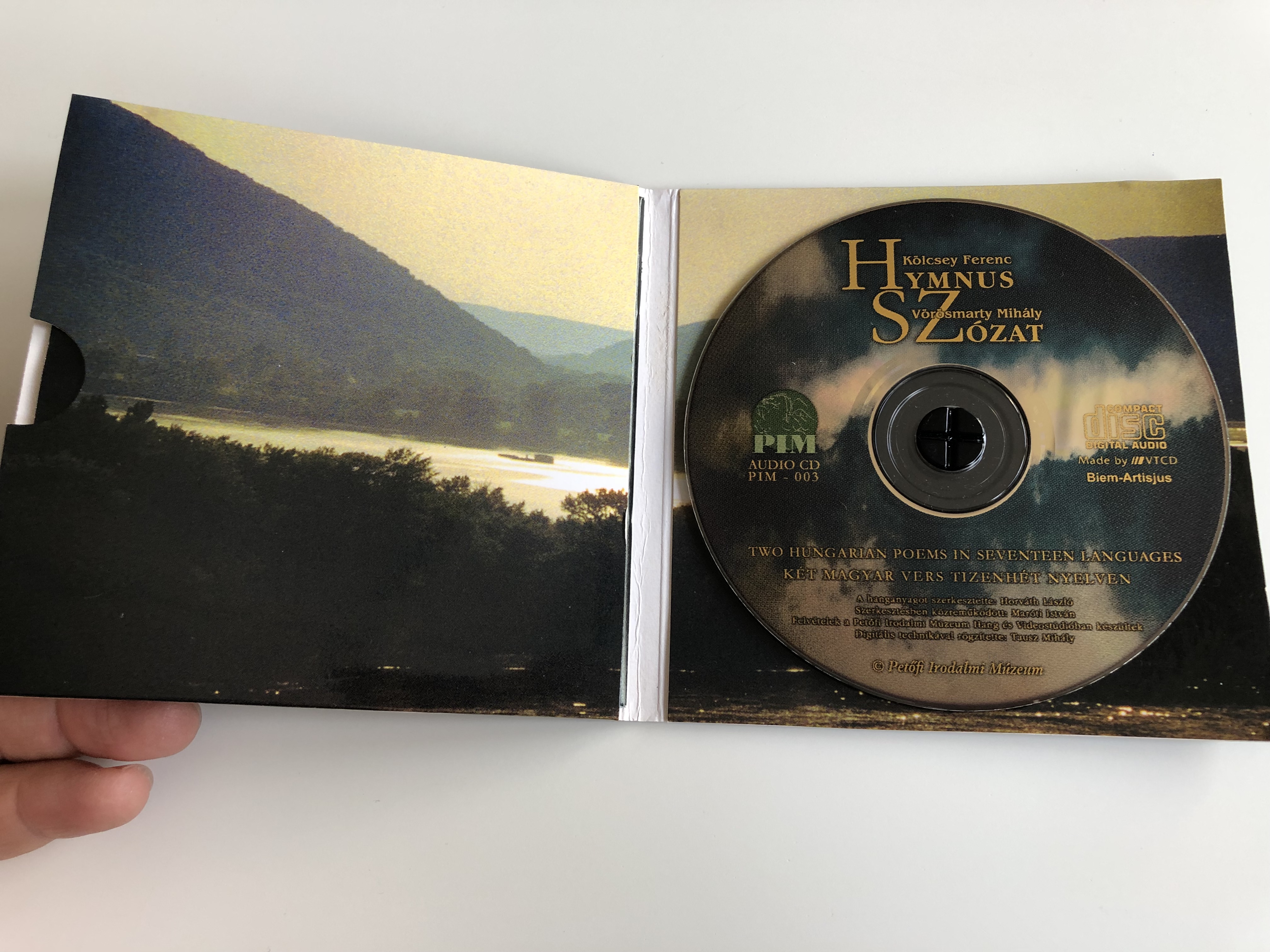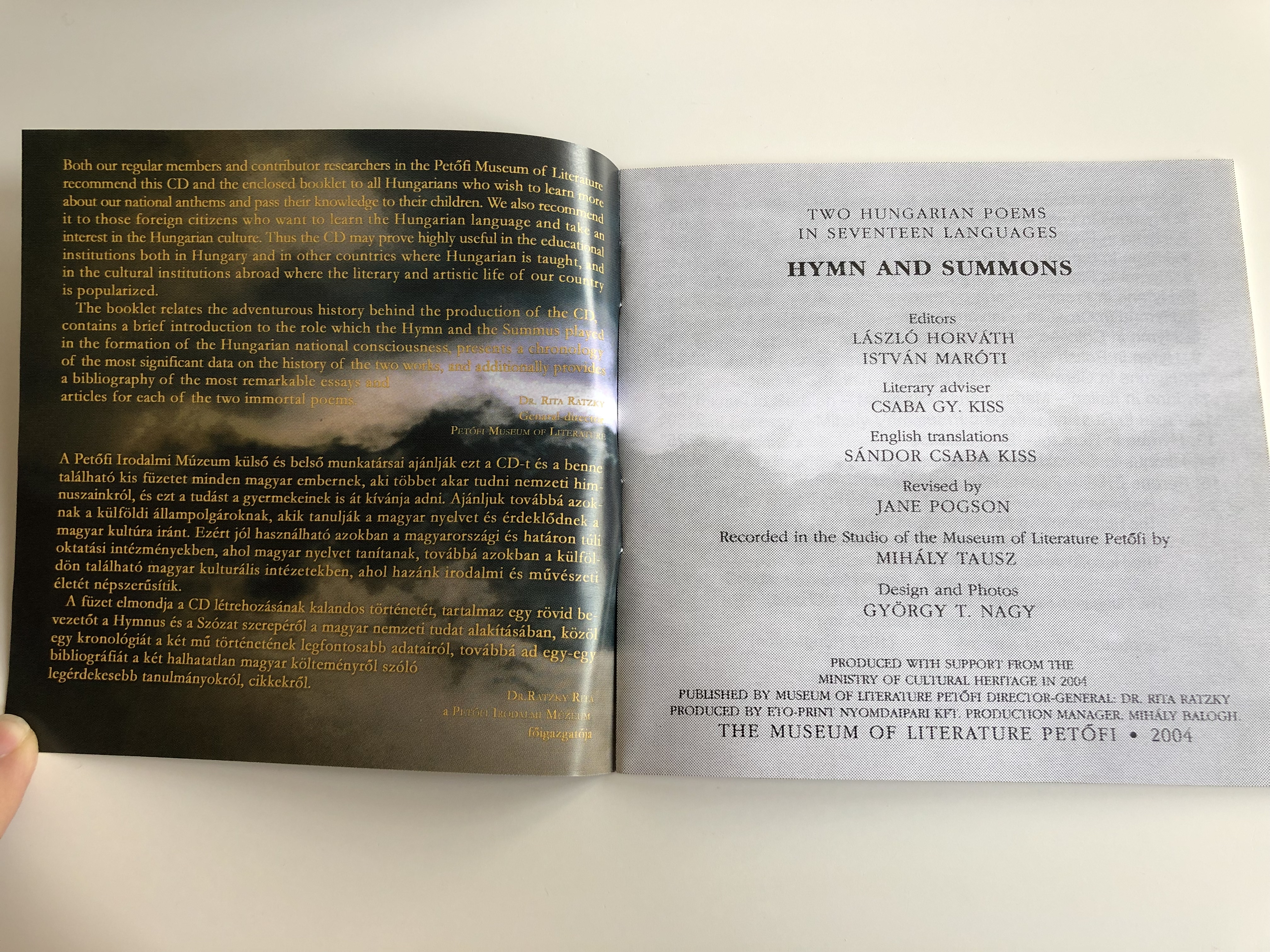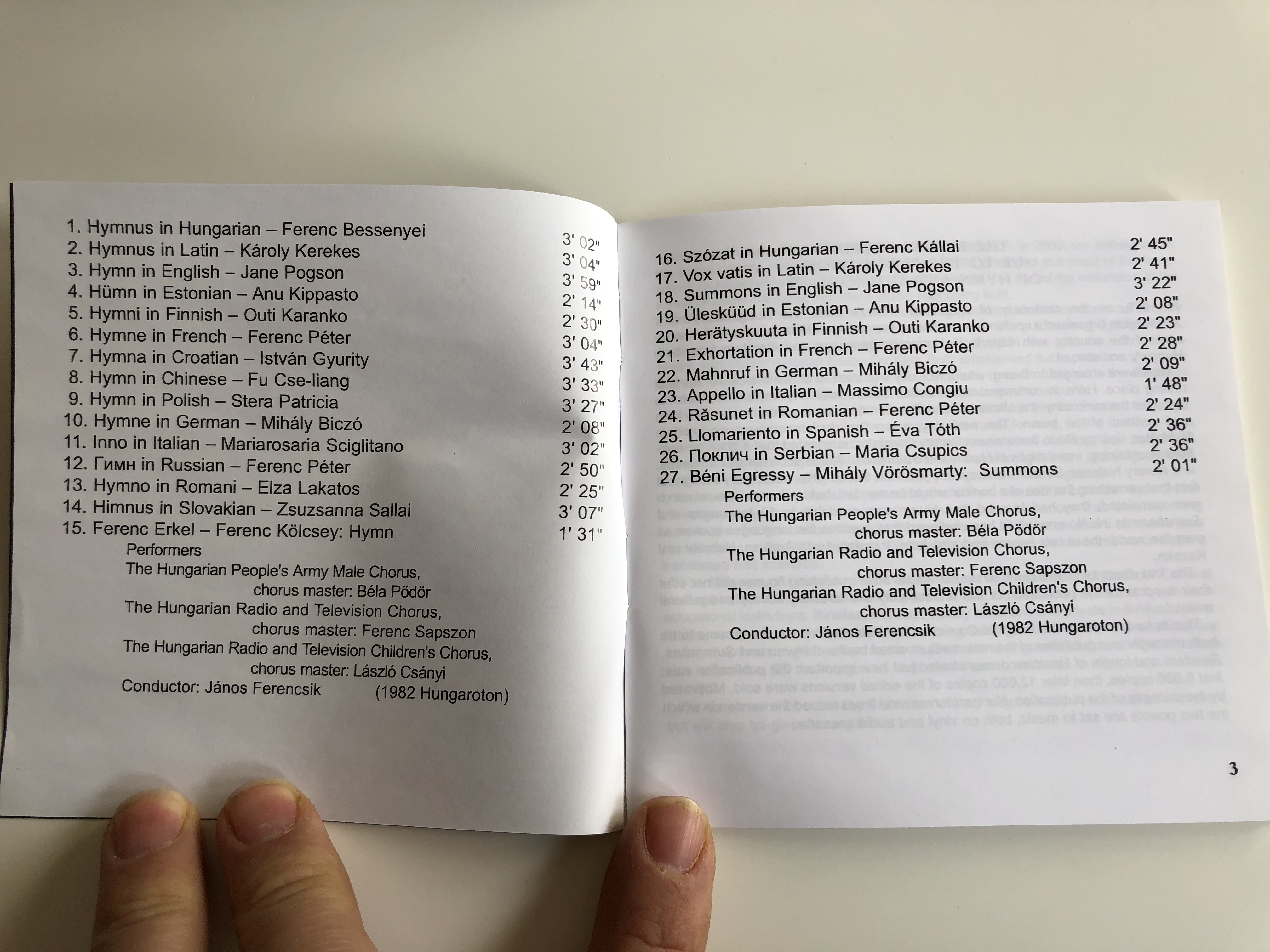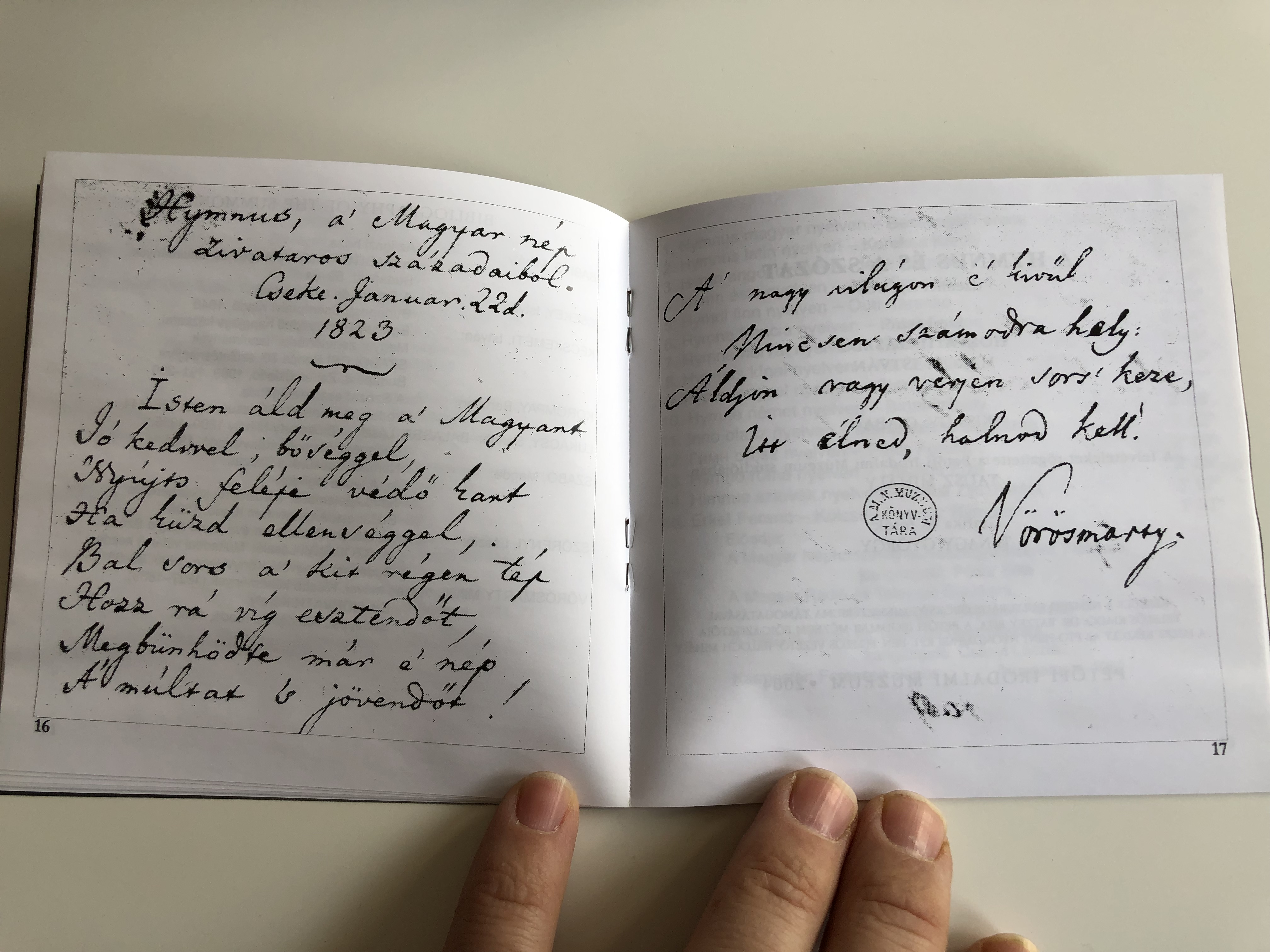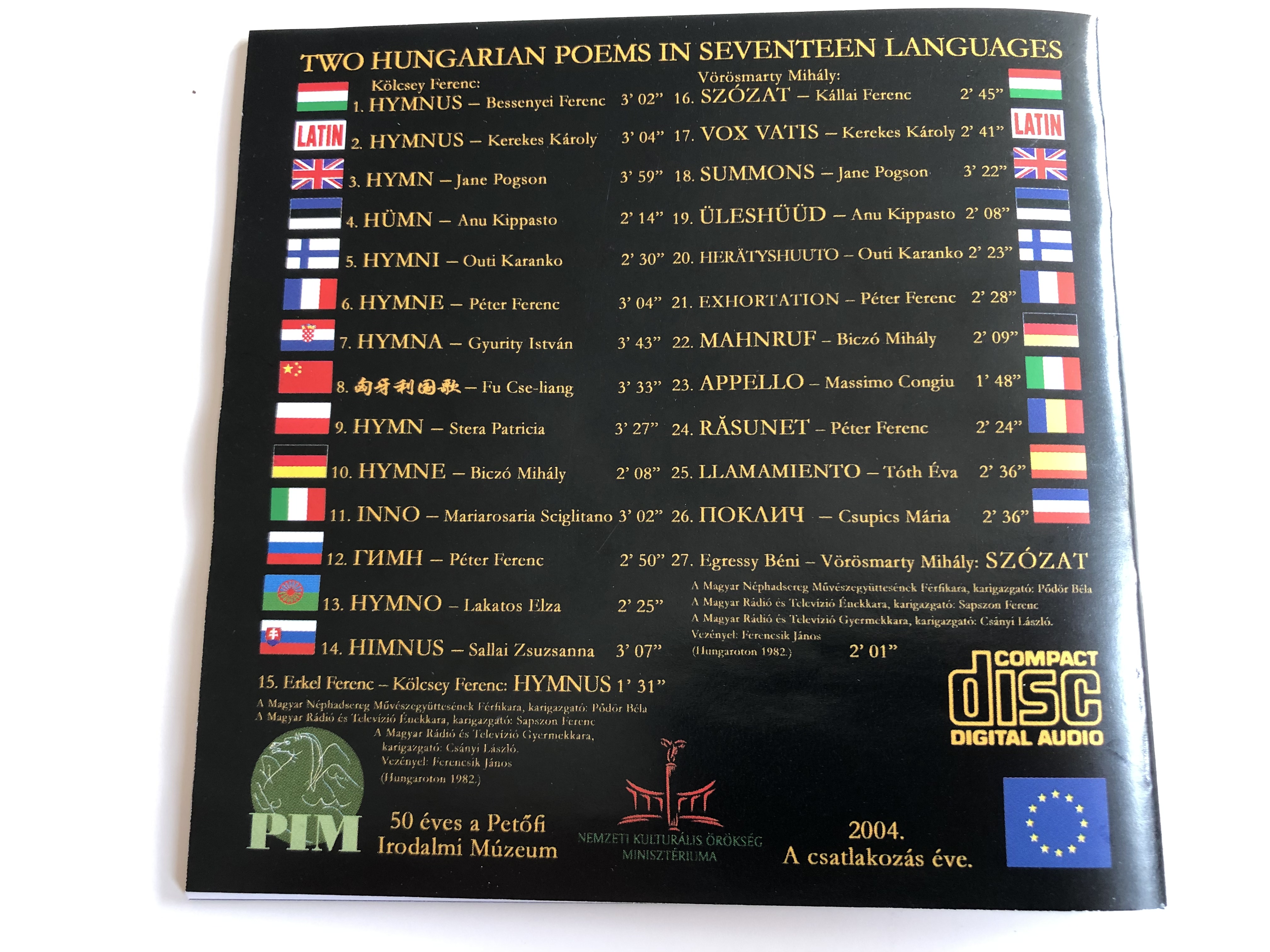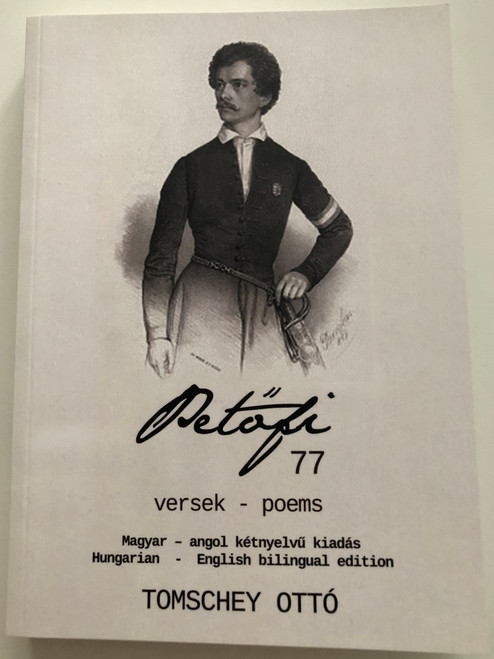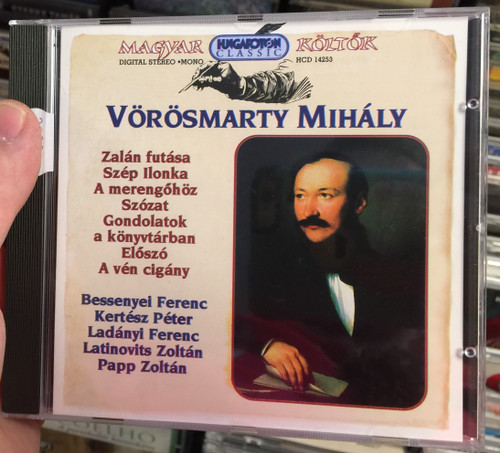Product Overview
Kölcsei Ferenc: Hymnus, Vörösmarty Mihály: Szózat
Two Hungarian Poems in Seventeen Languages - Két magyar vers tizenhét nyelven
Petőfi Irodalmi Múzeum / The Museum of Literature Petőfi
Hymn and Summons
Editors: László Horváth, István Maróti
Literary adviser: Csaba GY. Kiss
English translations: Sándor Csaba Kiss
Revised by Jane Pogson
Recorded in the studio of the Museum of Literature Petőfi by Mihály Tatusz
AUDIO CD 2004
UPC 5996357142201
Tracklist:
HYMN:
1. Hymnus in Hungarian - Ferenc Bessenyei 3:02
2. Hymnus in Latin - Károly Kerekes 3:04
3. Hymnus in English - Jane Pogson 3:59
4. Hümn in Estonian - Anu Kippasto 2:14
5. Hymni in Finnish - Outi Karanko 2:30
6. Hymne in French - Ferenc Péter 3:04
7. Hymna in Croatian - István Gyurity 3:43
8. Hymn in Chinese - Fu Cse-liang 3:33
9. Hymn in Polis - Stera Patricia 3:27
10. Hymne in German - Mihály Biczó 2:08
11. Inno in Italian - Mariarosaria Sciglitano 3:02
12. Hymne in Russian - Ferenc Péter 2:50
13. Hymno in Romani - Elza Lakatos 2:25
14. Himnus in Slovakian - Zsuzsanna Sallai 3:07
15. Ferenc Erkel - Ferenc Kölcsey: Hymn
Szózat:
16. Szózat in Hungarian - Ferenc Kállai 2:45
17. Vox vatis in Latin - Károly Kerekes 2:41
18. Summons in English - Jane Pogson 3:22
19. Ülesküüd in Estonian - Anu Kippasto 2:08
20. Heratyskuuta in Finnish - Outi Karanko 2:23
21. Exhortation in French - Ferenc Péter 2:28
22. Mahnruf in German - Mihály Biczó 2:09
23. Appello in Italian - Massimo Congiu 1:48
24. Rasunet in Romanian - Ferenc Péter 2:24
25. Llimariento in Spanish - Éva Tóth 2:36
26. Szózat in Serbian - Maria Csupics 2:36
27. Béni Egressy - Mihály Vörösmarty: Summons 2:01
Performers:
The Hungarian People's Army Male Chorus,
Chorus Master: Béla Pődör
The Hungarian Radio and Television Chorus,
Chorus Master:Ferenc Sapszon
The Hungarian Radio and Television Children's Chorus,
Chorus Master: László Csányi
Conductor: János Ferencsik (1982 Hungaroton)
"Himnusz" (Hungarian pronunciation: [ˈhimnus]; English: "Hymn") is the national anthem of Hungary. It was adopted in the 19th centuryand the first stanza is sung at official ceremonies. The words were written by Ferenc Kölcsey, a nationally renowned poet, in 1823, and its currently official musical setting was composed by the romantic composer Ferenc Erkel in 1844, although other less-known musical versions exist. The poem bore the subtitle "A magyar nép zivataros századaiból" ("From the stormy centuries of the Hungarian nation"); it is often argued that this subtitle – by emphasising past rather than contemporary national troubles – was added expressly to enable the poem to pass Habsburg censorship. The full meaning of the poem's text is evident only to those well acquainted with Hungarian history.
The lyrics of "Himnusz" are a prayer beginning with the words Isten, áldd meg a magyart (English: "God, bless the Hungarians").
The "Szózat" (in English: "Appeal" or "Summons") is a Hungarian patriotic song. It is considered as a second national anthem of Hungary, beside the Himnusz. Usually only its first two stanzas are sung at national celebrations. The official anthem is sung at the beginning of ceremonies, and Szózat is sung at the end.
It was written in 1836 by Mihály Vörösmarty, and was set to music in 1840 by Béni Egressy for the award of András Bartay, head of the national theatre. It was first performed at 10th May 1843, in the National Theatre. There was a long debate in that era whether Szózat or Himnusz would be chosen as the national anthem.
The title of Vörösmarty's work defines the situation: it is a speech, oration of a raconteur (the poet) to the Hungarian people. Although the Szózat of Vörösmarty touches similar thoughts as the poems of Ferenc Kölcsey, even as continuing his train of thought, its intonation is entirely different. Himnusz (Hymn) is a prayer, but Szózat acts rather like a speech, addressing the listener/reader by the narrator in the role of an orator. Furthermore, as a prayer, Himnusz becomes almost a begging for the last verse, while Szózat is much more uplifting, unfaltering, inspiring for patriotism and loyalty. However, it also reckons with the concerns of Himnusz, sees the death of the nation as a possibility: 'Or it will come, if it must come, The glorious death'. At the same time it finds possible the coming of a better era: 'There yet shall come … that better, fairer day'. The poem deals with the past in three, with the future in six verses.
It was translated to English by Watson Kirkconnell, Canadian writer, academic.
